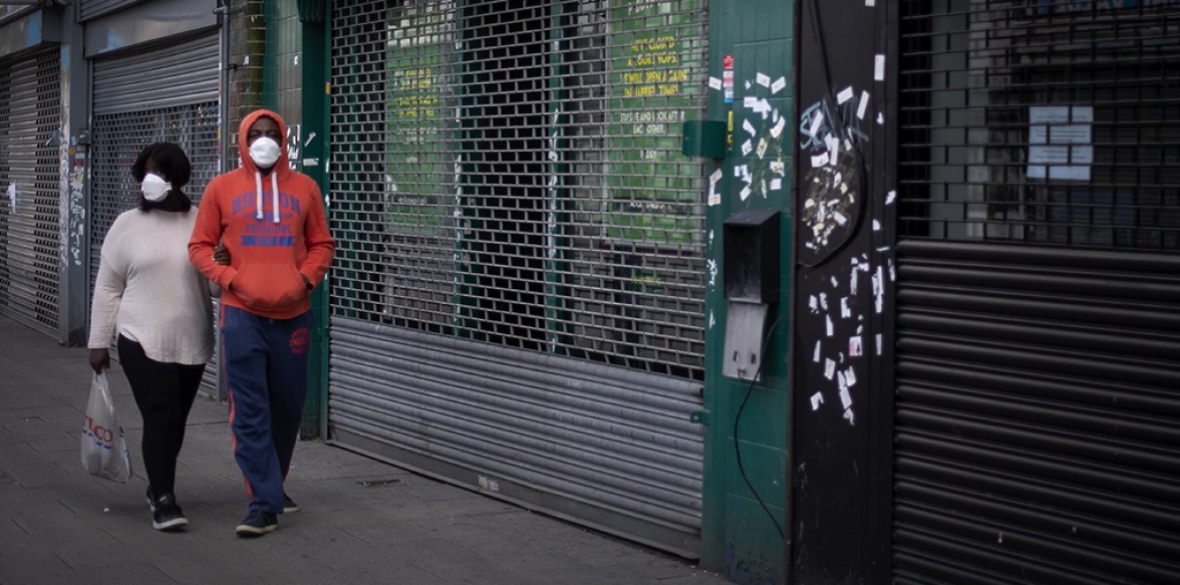THE Commons public accounts committee warns that Britain will be paying “the cost of Covid” for decades as government spending related to the pandemic has hit £372 billion.
The task facing the labour movement is to ensure that this is not used as an excuse to attack pay, pensions and public services.
The Conservatives are already doing this — claiming the hit to public finances is such that pay freezes must be meted out to public-sector workers such as teachers, while allocating a beggarly 3 per cent rise to NHS workers from existing budgets — putting further pressure on the health service and staffing levels.
The usual divide-and-rule efforts are underway. It would be unfair for public-sector workers to get pay rises while private-sector workers are struggling, the Tories insinuate — without mentioning that attacks on private-sector pay through policies like fire and rehire could also be stopped if the government was willing to act.
Young people have lost out through lockdowns and rising unemployment, other voices plead. It’s only fair that pensioners should bear their share of the burden through removal of the triple lock (which guarantees that state pensions rise in line with the consumer price index measure of inflation, average wages, or 2.5 per cent, whichever is highest). This insidious argument is made beyond the political right.
It ignores the fact that British state pensions are the least generous in western Europe — at 28 per cent of the average wage compared with 36 per cent in Ireland, 52 per cent in Germany and 90 per cent in Austria.
Pensioner poverty has risen to a 15-year high and pensioners have been targeted repeatedly by the government, which has cut pension credit and axed free TV licences for the over 75s.
The left should not allow ourselves to be distracted into arguments over which section of the working class has suffered most — or least.
It is vital that the Tories are not allowed to repeat the masterclass in deceit they and the Liberal Democrats deployed from 2010, to argue that public spending had bankrupted the country and we needed to “tighten our belts” — a euphemism for a savage attack on public services and ordinary people’s incomes.
“Austerity” was a con. There was no austerity for the rich, with the number of British billionaires increasing annually from 2010 and the super-rich swallowing an ever-larger slice of the pie both in Britain and globally.
The same is true now. The total wealth of billionaires worldwide rose by $5 trillion (£3.6tn) to $13tn (£9.5tn) in the 12 months from the beginning of the pandemic — the biggest increase ever recorded. Amazon boss Jeff Bezos, who has recently made headlines on a vanity trip to the fringes of space, could pay every one of his employees a £43,000 bonus and remain as wealthy as he was at the start of the crisis.
In Britain, Covid has been a bonanza for Tory donors. Coventry South MP Zarah Sultana has pointed out that donors who gave the Conservatives £8.2 million recouped a tidy £881m in government contracts.
Millions across Britain will be paying “the cost of Covid” through the loss of loved ones for the rest of their lives. The staggering death toll is connected to rampant poverty and insecurity. As the Scottish TUC has pointed out — noting that 40 per cent of universal credit recipients in Scotland are working — this is a problem for people in work as well as out of it.
We cannot as a country afford another wave of “austerity” further hollowing out our public services and punishing the very key workers who kept things running during the pandemic.
There is plenty of wealth in Britain but it is in the wrong hands. The rallying cry for the workers’ movement must be to make the rich pay.











